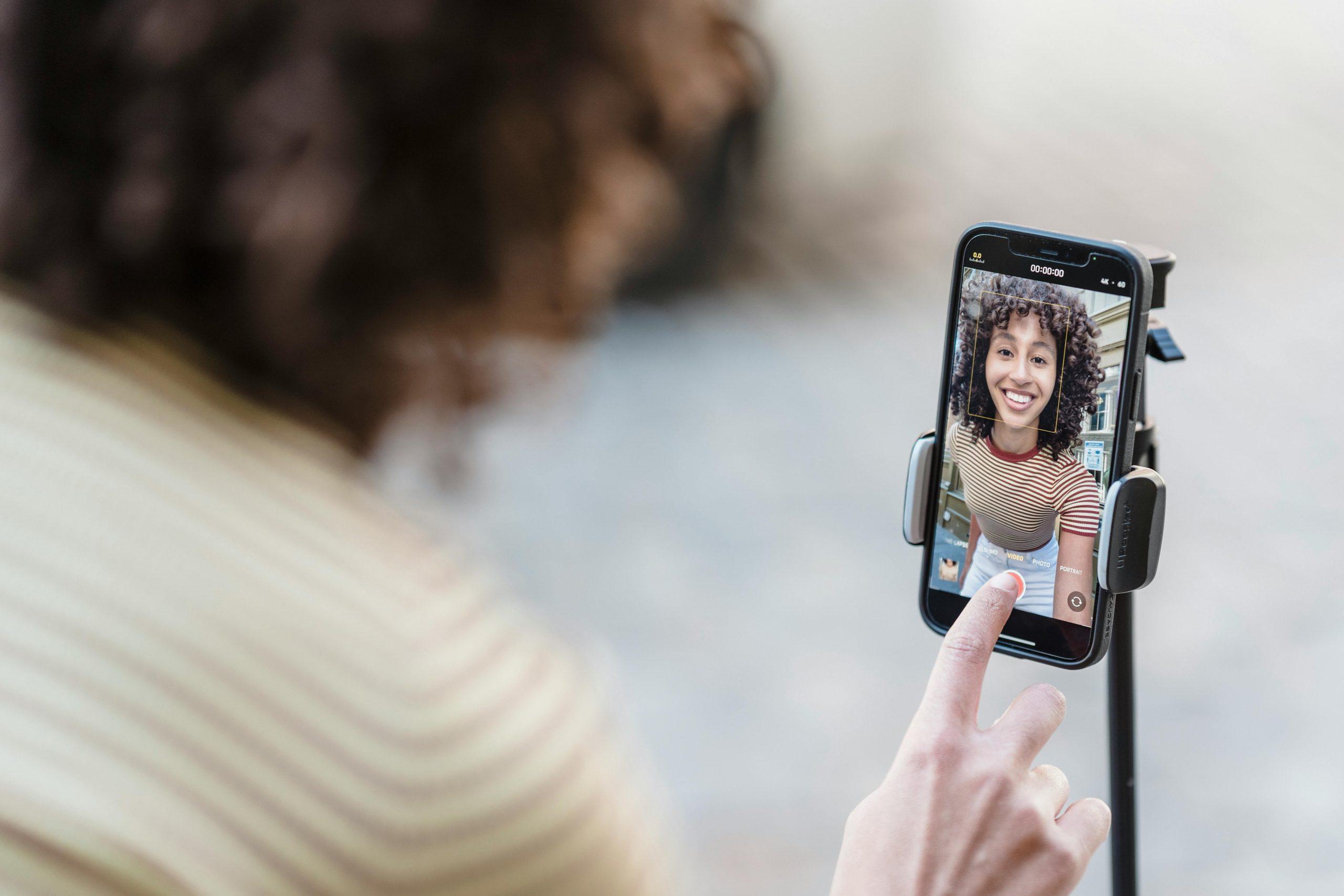In recent years, influencer marketing has undergone a remarkable transformation in Dubai, becoming a pivotal force in shaping consumer behavior and driving brand engagement across diverse industries. Let’s explore the journey of influencer marketing in Dubai and the significant trends that have shaped its evolution.
Dubai’s influencer marketing scene has witnessed exponential growth, fueled by a digitally savvy population and a vibrant social media landscape. Influencers, often popular personalities on platforms like Instagram and YouTube, have gained immense popularity for their ability to authentically connect with audiences and endorse products or services.
Key Trends and Shifts
The landscape of influencer marketing in Dubai continues to evolve rapidly, reflecting changing consumer preferences and industry dynamics. Some notable trends and shifts include:
- Rise of Micro-Influencers: The emergence of micro-influencers with niche audiences has diversified the influencer ecosystem, enabling brands to target specific segments effectively.
- Authenticity Over Glamour: Dubai audiences value authenticity and relatability in influencer content. Brands are shifting towards genuine storytelling and meaningful partnerships to connect with consumers on a deeper level.
- Focus on Local Culture: Influencers who celebrate Dubai’s rich culture and heritage resonate strongly with audiences, reflecting a growing preference for locally relevant content.
- Diversification of Platforms: Beyond Instagram, influencers are leveraging emerging platforms like TikTok and Snapchat to engage with younger demographics, reflecting the dynamic nature of digital marketing.
Choosing the Right Influencers for Your Dubai-based Brand
In Dubai’s bustling influencer landscape, selecting the right influencers for your brand is crucial to achieving successful marketing campaigns and forging genuine connections with your target audience. Here’s a practical guide to identifying influencers aligned with your brand values and appealing to local demographics.
Evaluating Influencer Criteria
- Engagement Metrics:
Analyze influencer engagement rates (likes, comments, shares) relative to their follower count. High engagement indicates genuine audience interaction and interest. - Authenticity and Trustworthiness:
Prioritize influencers who demonstrate authenticity and transparency in their content. Avoid those with a history of controversial endorsements or questionable practices. - Relevance to Local Demographics:
Assess the influencer’s audience demographics to ensure alignment with your target market in Dubai. Look for influencers who resonate with local cultural norms and values. - Content Quality and Consistency:
Review the quality and consistency of the influencer’s content. Is their content visually appealing, well-written, and professionally presented? - Previous Collaborations and Success Stories:
Investigate the influencer’s past collaborations and campaign performance. Seek testimonials or case studies that demonstrate successful partnerships with brands similar to yours.
Building Authentic Relationships
Once you’ve identified potential influencers, focus on building authentic relationships based on mutual respect and shared goals. Engage in meaningful conversations, communicate your brand’s expectations clearly, and collaborate on compelling campaign ideas that resonate with Dubai’s audience.
Legal and Regulatory Considerations in Influencer Marketing
In Dubai, influencer marketing is subject to specific regulations and guidelines aimed at promoting transparency, integrity, and consumer protection. Understanding and adhering to these legal considerations is essential for brands and influencers to maintain compliance and trust within the digital marketing landscape.
Regulations and Guidelines
- National Media Council (NMC) Regulations:
The National Media Council in the UAE oversees media-related activities, including influencer marketing. Influencers and brands must comply with NMC regulations to ensure transparency and accountability. - Disclosure Requirements:
Influencers are required to disclose paid partnerships and sponsored content clearly and prominently. This disclosure should be easily visible to viewers and clearly indicate the commercial nature of the collaboration.
Legal Implications
- Consumer Protection Laws:
Influencer marketing falls under consumer protection laws in Dubai, ensuring that advertising practices are fair, transparent, and not misleading to consumers. - Intellectual Property Rights:
Respect intellectual property rights when using copyrighted materials in influencer campaigns. Obtain necessary permissions and licenses for content creation and distribution.
Best Practices for Compliance
- Transparency and Disclosure:
Clearly disclose paid partnerships and sponsored content using hashtags such as #ad, #sponsored, or #paidpartnership. - Accuracy and Truthfulness:
Ensure that influencer content is accurate, truthful, and does not make false or misleading claims about products or services. - Respect for Cultural Norms:
Adhere to cultural sensitivities and local customs when creating influencer content in Dubai. Avoid content that may be deemed offensive or inappropriate. - Data Protection and Privacy:
Obtain consent from individuals before using their personal data in influencer marketing campaigns. Respect privacy laws and regulations applicable in Dubai.
Ensuring Compliance
To navigate legal and regulatory considerations in influencer marketing:
- Stay informed about updates to laws and guidelines related to influencer marketing practices in Dubai.
- Educate influencers and internal teams about compliance requirements and best practices.
- Partner with legal advisors or agencies specializing in influencer marketing to ensure full compliance with local regulations.
Measuring ROI (Return on Investment) in Dubai Influencer Campaigns
Influencer marketing campaigns in Dubai can deliver significant returns when executed strategically and measured effectively. Understanding how to measure ROI (Return on Investment) is essential for evaluating campaign success and optimizing future marketing efforts. Let’s explore methodologies and key performance indicators (KPIs) used to assess the effectiveness of influencer campaigns in the Dubai market.
Methodologies for Measuring Campaign Effectiveness
- Sales and Conversions:
- Track direct sales and conversions attributed to influencer-driven traffic using analytics tools and affiliate marketing links.
- Calculate the revenue generated relative to the investment made in the influencer campaign.
- Engagement Metrics:
- Monitor engagement metrics such as likes, comments, shares, and video views to gauge audience interaction and interest.
- Analyze the quality and depth of audience engagement to assess campaign impact.
- Brand Awareness and Reach:
- Measure brand awareness and reach by monitoring changes in social media followers, website traffic, and search volume during and after the influencer campaign.
- Use surveys or polls to assess changes in brand perception and recall among target audiences.
Key Performance Indicators (KPIs) for Influencer Campaigns
- Engagement Rate:
- Calculate the engagement rate by dividing total engagements (likes, comments, shares) by total reach (number of followers exposed to the content).
- A higher engagement rate indicates that the influencer content resonated well with the audience.
- Conversion Rate:
- Determine the conversion rate by dividing the number of conversions (e.g., purchases, sign-ups) by the total number of clicks or impressions generated by the influencer campaign.
- A higher conversion rate signifies effective audience action resulting from the influencer’s promotional efforts.
- Reach and Impressions:
- Evaluate the reach and impressions of influencer content across different platforms to assess the campaign’s exposure and visibility.
- Compare reach metrics before and after the campaign to measure incremental impact.
- ROI Calculation:
- Calculate the ROI of influencer campaigns by subtracting campaign costs (e.g., influencer fees, production costs) from the generated revenue and dividing the result by campaign costs.
- A positive ROI indicates that the campaign generated more revenue than the investment made.
Analytics Tools for Measurement
- Social Media Insights:
Utilize built-in analytics tools on social media platforms (e.g., Instagram Insights, YouTube Analytics) to track performance metrics and audience demographics. - Google Analytics:
Integrate campaign-specific UTM parameters into URLs to track influencer-driven traffic, conversions, and revenue within Google Analytics. - Third-Party Influencer Marketing Platforms:
Leverage specialized influencer marketing platforms that offer advanced analytics and reporting features to measure campaign effectiveness comprehensively.
Finding the Right Influencer Marketing Agency in Dubai
Partnering with a reputable influencer marketing agency in Dubai can amplify your brand’s reach and ensure successful collaborations with influencers. Here are tips and strategies for identifying the right agency that aligns with your brand’s goals and values.
Considerations When Selecting an Agency
- Agency Expertise and Specialization:
- Look for agencies with specific expertise in influencer marketing and a strong understanding of Dubai’s market dynamics.
- Evaluate their portfolio to assess their track record in executing successful influencer campaigns across different industries.
- Industry Experience:
- Prioritize agencies that have experience working with brands similar to yours or within your industry niche.
- Consider their familiarity with local consumer behaviors, cultural nuances, and industry trends in Dubai.
- Client Testimonials and Case Studies:
- Request client testimonials and case studies from previous influencer campaigns managed by the agency.
- Review feedback from clients to gauge satisfaction levels and overall performance.
- Influencer Network and Relationships:
- Inquire about the agency’s network of influencers and their selection criteria. Ensure that influencers aligned with your brand values and target audience are part of their roster.
- Inquire about the agency’s network of influencers and their selection criteria. Ensure that influencers aligned with your brand values and target audience are part of their roster.
- Campaign Strategy and Creativity:
- Discuss the agency’s approach to influencer campaign strategy, content creation, and storytelling.
- Evaluate their creativity and ability to develop innovative campaigns that resonate with Dubai audiences.
- Transparency and Communication:
- Ensure transparent communication and clarity regarding campaign objectives, timelines, budgets, and deliverables.
- Choose an agency that values collaboration and provides regular updates throughout the campaign lifecycle.
Tips for Identifying Reputable Agencies
- Research and Compare:
- Conduct thorough research and compare multiple agencies based on their offerings, reputation, and client reviews.
- Leverage online resources, industry directories, and referrals from peers to identify top influencer marketing agencies in Dubai.
- Schedule Consultations:
- Schedule consultations with shortlisted agencies to discuss your brand’s objectives and assess their alignment with your vision.
- Evaluate their responsiveness, professionalism, and understanding of your brand’s unique requirements.
- Budget and ROI Expectations:
- Set clear budget expectations and discuss ROI metrics with potential agencies to ensure alignment with your marketing goals.
- Choose an agency that offers value-driven services and demonstrates a commitment to delivering measurable results.
- Legal and Compliance Standards:
- Verify that the agency adheres to legal and regulatory standards governing influencer marketing practices in Dubai.
- Ensure that they prioritize transparency, ethical practices, and compliance with industry guidelines.
Micro vs. Macro Influencers: Choosing the Right Approach
Influencer marketing in Dubai offers a spectrum of options when it comes to collaborating with influencers, ranging from micro-influencers with niche audiences to macro-influencers with larger follower bases. Choosing between micro and macro influencers depends on your campaign objectives, target audience, and desired outcomes. Let’s compare the benefits and considerations of each category to help you make an informed decision.
Micro-Influencers
Benefits:
- High Engagement: Micro-influencers often have more engaged and loyal followers within specific niche communities.
- Authenticity: They are perceived as more authentic and relatable, which can strengthen brand credibility.
- Cost-Effective: Collaborating with micro-influencers is usually more budget-friendly compared to macro-influencers.
Considerations:
- Limited Reach: Micro-influencers typically have a smaller reach compared to macro-influencers.
- Content Quality: Quality of content may vary based on individual capabilities and resources.
- Influence Scope: Micro-influencers may have a narrower audience scope, which may not align with broader marketing objectives.
Macro-Influencers
Benefits:
- Wide Reach: Macro-influencers have a broader audience reach and can amplify brand visibility on a larger scale.
- Established Credibility: They are often recognized as industry experts or public figures, enhancing brand credibility.
- Professional Content: Macro-influencers may have access to professional resources, resulting in high-quality content production
Considerations:
- Higher Costs: Collaborating with macro-influencers can be more expensive due to their larger follower base and influence.
- Engagement Rate: Macro-influencers may have lower engagement rates compared to micro-influencers, as their audience may be less niche-focused.
- Authenticity Concerns: Maintaining authenticity and relatability can be a challenge for macro-influencers with mass appeal.
Choosing the Right Approach for Dubai Market
When deciding between micro and macro influencers for your campaign in Dubai, consider the following factors:
- Target Audience: If you aim to reach a specific niche demographic or local community in Dubai, micro-influencers may be more effective in driving engagement and conversions.
- Campaign Objectives: For awareness-driven campaigns targeting a broader audience or seeking rapid exposure, macro-influencers can provide broader reach and visibility.
- Budget Allocation: Evaluate your budget and ROI expectations to determine the most cost-effective approach based on your campaign goals.
- Content Requirements: Consider the type and quality of content needed for your campaign. Micro-influencers may excel in authentic storytelling, while macro-influencers can deliver polished and professional content.
In The Nutshell:
The choice between micro and macro influencers in Dubai should align with your specific campaign objectives, audience demographics, and budget considerations. Both approaches offer unique advantages and considerations, and the optimal strategy may involve a blend of both influencer categories to maximize campaign impact and effectiveness within the diverse and dynamic Dubai market.






